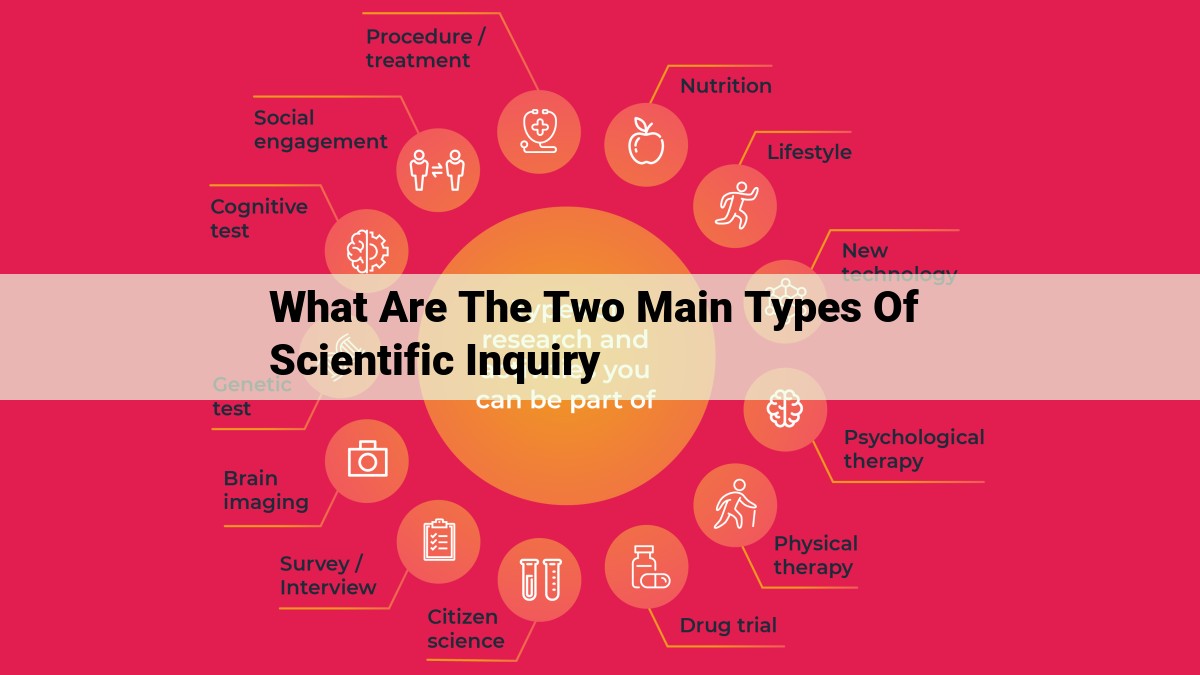Methodologies In Scientific Inquiry: Inductive Vs. Deductive Reasoning

- Inductive Inquiry: Begins with observations, develops hypotheses, and draws conclusions based on empirical evidence.
- Deductive Inquiry: Uses logic to derive specific predictions from general principles and tests those predictions.
The Nature of Scientific Inquiry: A Tale of Discovery
Step into the enthralling realm of scientific inquiry, a journey where curiosity and critical thinking intertwine to uncover the secrets of our world. Scientific inquiry embarks on an adventure to gather knowledge, test ideas, and expand the boundaries of human understanding. Its significance lies in its ability to provide a reliable and evidence-based understanding of the natural world, propelling us forward in scientific advancements.
The world of scientific inquiry is a vast and intricate landscape, with two primary paths to unravel its mysteries: inductive and deductive reasoning. Inductive reasoning paints a vibrant canvas of observation, hypothesis testing, and generalization. It meticulously gathers data from the world around us, formulating hypotheses to explain our observations. Through rigorous testing and refinement, inductive inquiry leads to the development of theories, firmly grounded in empirical evidence.
Conversely, deductive reasoning takes a top-down approach, rooted in logic and accepted principles. It starts with premises, assumptions that provide the foundation for reasoning. From these premises, it meticulously derives conclusions, making logical deductions. Deductive inquiry shines in its ability to generate specific predictions and test hypotheses, offering a precise and methodical approach to understanding the world.
As we navigate the scientific landscape, it becomes evident that these two approaches are not mutually exclusive; rather, they complement each other synergistically. Inductive inquiry provides the empirical foundation upon which deductive reasoning can soar. Together, they form an intricate dance of discovery, iteratively refining our understanding of the cosmos.
Comparison of Inductive and Deductive Inquiry
In the realm of scientific inquiry, inductive and deductive methods play pivotal roles, offering contrasting approaches to unraveling the intricacies of our world.
Inductive inquiry, akin to a meticulous detective, meticulously gathers evidence from observations, formulating hypotheses based on patterns and correlations. It gradually ascends from specific observations to broader generalizations, akin to constructing a mosaic from scattered fragments. The strength of inductive reasoning lies in its ability to uncover novel insights and generate theories grounded in empirical evidence.
Deductive inquiry, on the other hand, resembles a logical puzzle solver. It begins with general principles, established truths, or assumptions (premises). Using the principles of logic, it deduces specific predictions and hypotheses that can be empirically tested. The power of deductive reasoning stems from its ability to derive precise conclusions from well-established premises.
While both methods contribute to the scientific process, they exhibit distinct characteristics. Inductive inquiry prioritizes exploration and discovery, often leading to new knowledge and paradigms. Deductive inquiry excels in validation and testing, offering precise predictions that can be experimentally verified or refuted.
However, each approach has its limitations. Inductive reasoning may lead to hasty generalizations if observations are incomplete or biased. Deductive reasoning relies on the validity of its premises; incorrect or incomplete premises can lead to flawed conclusions.
Despite their differences, inductive and deductive inquiry complement each other in the scientific endeavor. Inductive methods generate hypotheses, which deductive methods then validate. Deductive inquiry provides predictions, which inductive inquiry tests empirically. This interplay fosters a continuous cycle of refinement and advancement in scientific understanding.
Ultimately, both inductive and deductive inquiry are indispensable tools in the scientific arsenal. By leveraging their unique strengths and addressing their limitations, scientists strive to unravel the secrets of nature and expand the boundaries of human knowledge.
Complementary Roles of Inductive and Deductive Inquiry
In the realm of scientific exploration, inductive and deductive reasoning stand as indispensable tools, each contributing uniquely to the advancement of knowledge. While induction draws inferences from observations, deducing derives specific conclusions from general principles.
Inductive Reasoning:
Inductive reasoning enables scientists to observe patterns in the world around them, formulate hypotheses based on these observations, and conduct experiments to test their predictions. Through repeated experimentation, they gradually refine and generalize their theories, building a body of knowledge that explains the natural world.
Deductive Reasoning:
In contrast, deductive reasoning begins with established principles and applies them to specific situations. By using logical syllogisms, scientists can make predictions and test hypotheses based on the principles they hold true. Deductive reasoning provides a framework for confirming or refuting theories, helping to refine understanding and advance scientific knowledge.
Collaboration in the Scientific Process:
Remarkably, these two methods of inquiry complement each other in the scientific process. Inductive reasoning generates new ideas and insights, while deductive reasoning tests and validates them. This interplay leads to the development and refinement of scientific theories.
Example:
In studying the motion of celestial bodies, astronomers use inductive reasoning to observe their movements and patterns. They formulate hypotheses about the underlying laws that govern these motions. These hypotheses are then tested through deductive reasoning, using established principles of physics to predict the behavior of celestial bodies in specific situations. By combining both methods, astronomers gradually develop and refine our understanding of the solar system and the universe.
Inductive and deductive reasoning are not mutually exclusive but rather complementary methods that work together to advance scientific knowledge. Through observation, hypothesis testing, and logical reasoning, scientists unlock the secrets of the natural world. These methods empower us to understand the universe around us and make informed decisions that shape our future.